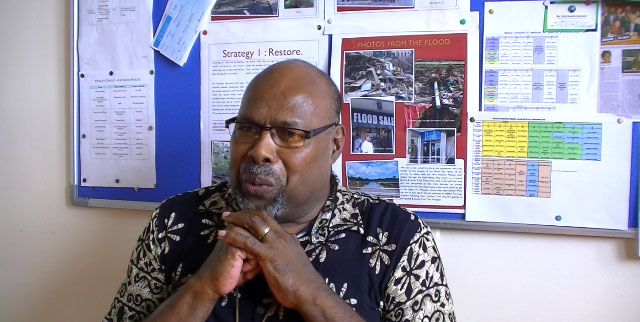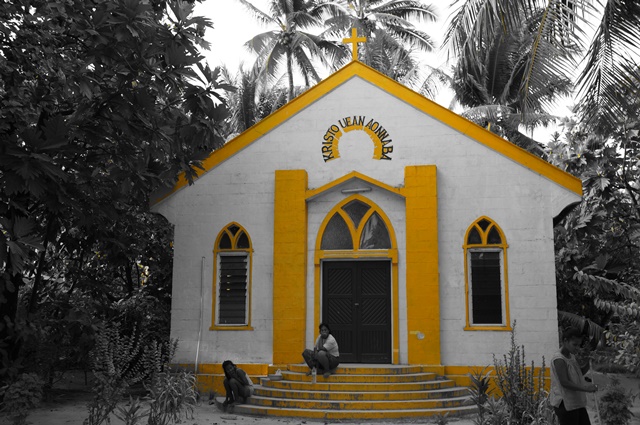A fundamental shift is in progress in the way sexual and reproductive health and rights approached by clergymen as global faith-based organisation leaders acknowledge the cost of remaining silent - for example the continuation of situations like 70,000 adolescents in developing countries die annually from pregnancy and childbirth complications, or of the 7.3 million births to girls under 18, two million of them are under 15 years old.
The shift has been reflected in the continuous engagement of faith-based organisations by the United Nations (UN), as the world prepares for the endorsement and implementation of the post-2015 development agenda.
At the most recent gathering of this nature, the Pacific region was represented by Reverend Jeremaia Waqainabete, the Methodist Church of Fiji's Divisional Superintendent of the Wesley Division, who said he was amazed that the UN would involve faith-based organisations.

"We are all for the common good. I believe that the faith-based organisations have a major role to play in the implementation of activities related to the post-2015 agenda," Mr Waqainabete said of his participation at the New York meeting in September 2014.
Since returning, Mr Waqainabete has been involved in a few projects including his participation at a regional Christian youth meeting attended by young people from Fiji, Tonga, Samoa, the United Kingdom, Australia, New Zealand and the United States of America.
Mr Waqainabete's approach to the issue of sexual and reproductive health and rights is partially informed by the concept of inclusive theology, the practical applications of which he says can be through the "re-reading" of one's Bible.
He made reference to the text of how God loved the world. Re-reading it is to dismiss the interpretation that it applied only to human beings.
"We begin to understand that human beings are just a part of the whole creation of God and we are all equal in the sight of God therefore when we talk about sexual orientation or gender we come to understand that we are all equal in the presence of God. I believe it rekindles in our lives sensitivity where we recognize each individual as such," he said.
"In re-reading the Bible and introducing a new theological paradigm, the whole emphasis also shifted to focus on individuals, recognising your gender as God-given and your sexuality, being a gift from God it is how you engage yourself should also be something acceptable to God.
"When we recognise that our sexuality is God's gift, we will never engage in a sexual activity in a manner which is ungodly so therefore it also comes down to the fact that even bearing children is part of God's plan so pregnancy will be something of concern."
Mr Waqainabete said inclusive theology and how it was changing the dynamics of practising one's faith was a lot more palatable to young people.
"The young people are very much comfortable and they really accept the (concept) because I believe they can identify with the common goal of the present age, where we need to identify with the wider world, with the wider society that we are in and we cannot exist in isolation," Mr Waqainabete said.
UNFPA Pacific Sub-Regional Office director and representative Dr Laurent Zessler said faith-based organisations most certainly had a role to play in the development of the communities they were part of.
"UNFPA respects all persons' choice of their belief systems and we know that particularly in the Pacific, there is a strong sense of having faith. UNFPA also acknowledges that faith-based organisations are great influencers - we can and should continue to work collectively for the positive progress of our island communities."
In 2009, the United Nations Population Fund (UNFPA) engaged 42 world leaders of faith-based organisations and 12 UN bodies in a policy roundtable with faith-based organisations on strengthening partnerships for population and development.
Five years later, the meeting Mr Waqainabete attended in New York had more than 40 faith leaders representing the Baha'i, Buddhist, Christian, Hindu, Jewish and Muslim faiths.
The group eventually issued a rousing call to action on sexual and reproductive health and reproductive rights: "We the people of faith call upon the United Nations systems and member states to ensure that sexual and reproductive health and reproductive rights be made central to the post-2015 sustainable development agenda."
Their statement entitled "A Call to Action: Faith for Sexual and Reproductive Health and Reproductive Rights" repudiates abuses that undermine human rights which were often attributed to religion:
"Not in our name should any mother die while giving birth," it says. "Not in our name should any girl, boy, woman or man be abused, violated or killed. Not in our name should a girl child be deprived of her education, be married, be harmed or abused. Not in our name should anyone be denied access to basic health care, nor should a child or adolescent be denied knowledge of and care for his/her body. Not in our name should any young person be denied their full human rights."


